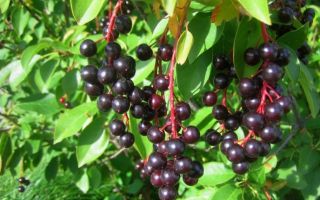Content
- 1 What does bird cherry look like
- 2 Chemical composition and calorie content
- 3 Why bird cherry is useful
- 4 At what age children can be given bird cherry
- 5 Is bird cherry possible for pregnant women and breastfeeding
- 6 Bird cherry recipes in folk medicine
- 7 The use of bird cherry in cosmetology
- 8 What can be cooked from bird cherry
- 9 The benefits of bird cherry flour
- 10 Procurement and storage
- 11 Contraindications and harm of bird cherry
- 12 Conclusion
Bird cherry is a tree, the abundant flowering of which can be admired annually. But in addition to beautiful fragrant flowers, the plant also produces valuable fruits. The benefits and harms of bird cherry are an urgent issue for those who are partial to traditional medicine and home cooking.
What does bird cherry look like
Sometimes bird cherry is a large shrub, sometimes it grows like a tree, reaching up to 10 m in height. The dense crown consists of ovoid or oblong leaves, pointed at the edges.
The plant blooms in May and June, releasing brushes of white flowers that exude a strong sweetish aroma - it is during this period that the bird cherry is easiest to recognize. The berries of the tree are round, black, usually no more than 1 cm in diameter; they appear on the branches in July – August.
Chemical composition and calorie content
The energy value of bird cherry berries is low, since 100 g of fruits contain only 101 calories. But on the other hand, there are not only carbohydrates in the amount of 16.8 g, but also proteins - their volume is 8.4 g. There is no fat in the fruits of the plant.
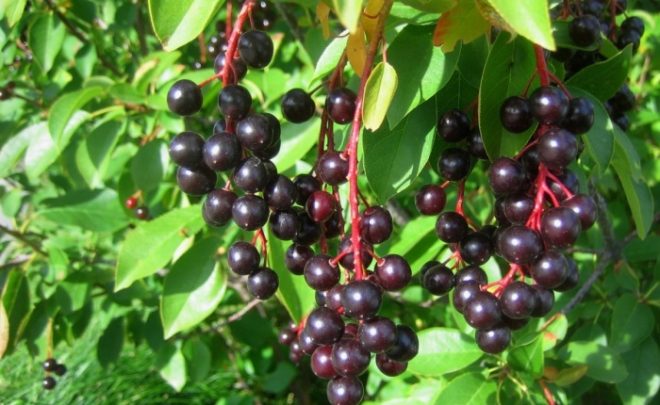
The benefits of bird cherry are due to its vitamin composition. The berries of the plant contain:
- vitamin C in considerable amounts;
- the main trace elements are magnesium, zinc, iron and copper;
- vitamin P or rutin;
- relatively rare cobalt and manganese;
- tannins;
- malic and citric acids;
- pectin;
- polysaccharides and phytoncides.
Why bird cherry is useful
Due to its rich composition, bird cherry is good for the whole body. In particular, the plant:
- good for gastrointestinal disorders due to its astringent properties;
- effectively relieves inflammation;
- stops diarrhea quickly;
- lowers fever, has diuretic and diaphoretic properties;
- strengthens blood vessels and heart;
- relieves toothache and sore throat.
All parts of the plant - fruits, flowers, leaves and bark - have the above healing effect.
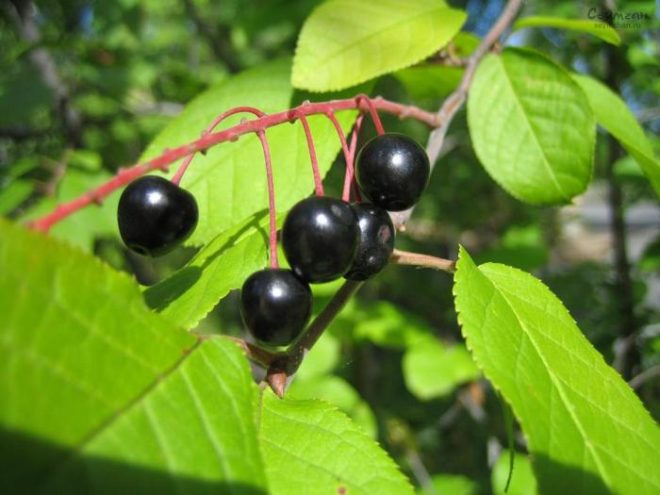
The benefits of berries
Berries are the most valuable part of the plant. Their benefit lies in the fact that the fruits or infusions based on them:
- soothes toothache and discomfort in the gums;
- disinfect wounds and abrasions;
- promote healing of injuries;
- with diarrhea, they have a fixing effect;
- eliminate nausea.
Useful properties of leaves and flowers
Flowers and leaves of bird cherry also have a healing effect on the body. Namely:
- help with indigestion and diarrhea;
- treat colds and coughs;
- relieve inflammation and pain with stomatitis and caries;
- lower the temperature.
In addition, infusions based on them will be of great benefit during periods of vitamin deficiency - in winter and spring. The leaves are used to make medicinal compresses for open wounds and abscesses.
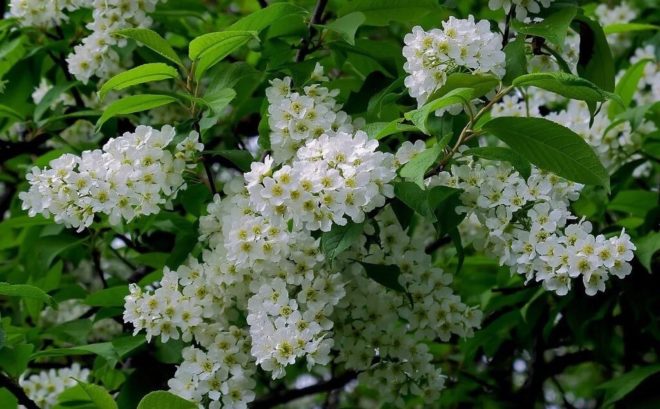
The healing properties of the bark
Bird cherry bark is one of the best natural anti-cold remedies. Decoctions and infusions based on it are used:
- with flu and SARS;
- for any inflammation;
- during lingering stress.
Dried bird cherry
The berries of the plant are useful not only fresh - when dried, they completely retain all valuable properties. There is an interesting feature - dried fruits are slightly more nutritious than fresh berries, since they contain 108 calories per 100 g.
The main advantage of dried bird cherry over fresh one is that dry berries are stored longer - up to 1 year.

At what age children can be given bird cherry
Drinks made from leaves, berries and flowers are good for children - bird cherry is especially good for diarrhea. However, there is a nuance - the plant can cause allergies, so it is recommended to give it to children over 3 years old and after consulting a doctor.
Is bird cherry possible for pregnant women and breastfeeding
The benefits of bird cherry are undeniable, but the harm from it can be considerable - due to the content of natural poisons in the plant, in particular, hydrocyanic acid. For a healthy body in small doses, this substance is safe - but it can damage a pregnant woman and even more so the fetus.
In addition, the berries provoke increased contractions of the uterus, and this threatens miscarriage or premature birth. Therefore, while carrying a child, it is better to refrain from bird cherry.
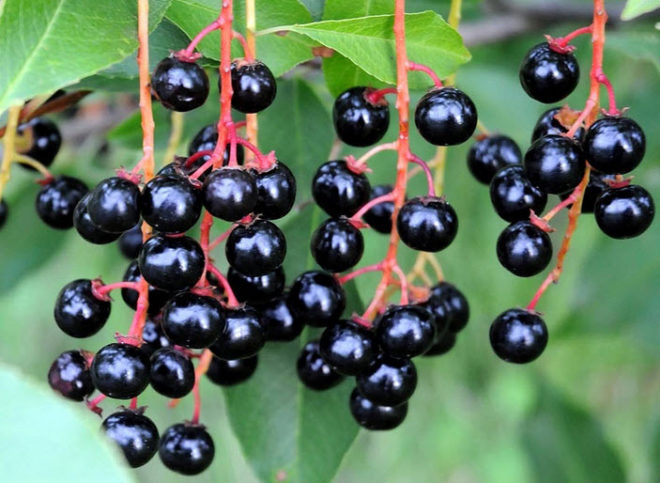
Do not consume berries and drinks based on them during lactation - the plant can cause allergies in the baby.
Bird cherry recipes in folk medicine
The benefits of bird cherry make it a valuable herb for traditional medicine. It is often found in homeopathic remedies and dietary supplements. And of course, bird cherry is actively used in home treatment for diseases:
- stomach and intestines;
- respiratory tract and skin;
- kidney and genitourinary system;
- teeth and gums.
Several recipes are the most popular in traditional medicine.
Bird cherry broth
A simple decoction of berries, bark, or leaves is a versatile remedy for a wide range of ailments, from colds to stomach upsets.
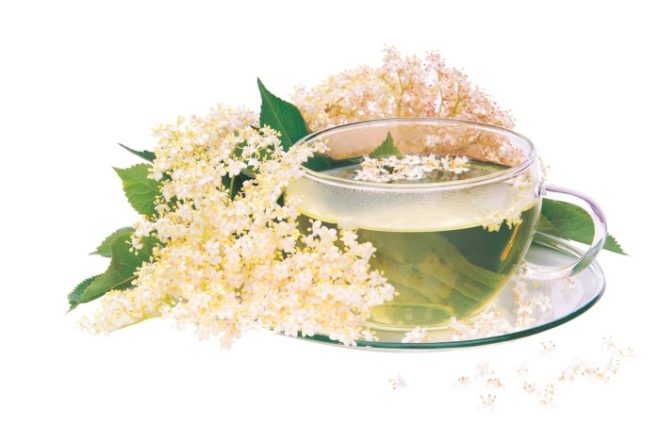
It is prepared very quickly - pitted fruits, leaves or bark in a small amount are poured with boiling water (1:10), and then boiled for 20 minutes and left to infuse for 2 hours. Drink a few sips of the drink twice a day.
Infusion of bird cherry
Berry infusion is especially beneficial for coughs, sore throats, stomatitis, and quickly stops diarrhea.
The infusion of flowers is famous for its disinfecting properties - it is good for them to wash festering wounds.
For cooking, you need to pour boiling water over the seedless berries or flowers of the plant and leave under the lid for at least 8 hours, and then filter. The infusion can be used for rinsing and treating lesions, or drink 3-4 sips twice a day.

Bird cherry tincture
An alcohol-based remedy can be prepared from both bark and berries.
- To prepare a disinfecting and warming tincture, take 50 g of bark, and then pour a glass of vodka and leave to infuse for 3 weeks. The finished product is used to treat the wounds and rub the back or limbs.
- For a tincture for gastric disorders, take two handfuls of berries, from which the seeds have been previously removed, fill them with vodka and incubate for 2 weeks in a dark place. The finished product is drunk a few drops before meals, no more than three times a day.
Bird cherry blossom tea
Aromatic tea can be brewed from the flowers of the plant, which will strengthen the immune system and have a tonic effect. All you need is to pour boiling water over a handful of dried flowers and wait a few minutes for the drink to infuse.
Flowers can be added to classic teas, combined with raspberries and strawberries, and other herbal teas.

The use of bird cherry in cosmetology
Bird cherry is actively used not only in treatment - it is used for facial skin care. Since the plant is rich in vitamin C and tannins, masks and lotions based on it have a rejuvenating effect, remove wrinkles and tighten pores.
The easiest way is to brew flowers in boiling water and wash with a warm broth in the morning and evening. If desired, other ingredients can be added to the homemade lotion, for example, glycerin and honey.
What can be cooked from bird cherry
The fruits of the plant are used not only for medicinal, but also for culinary purposes.
- From the pulp of berries, you can make a lot of tasty and healthy drinks - bird cherry compote, fresh juice diluted with water, jelly.
- The berries are suitable for making vitamin preserves and jams.
- Bird cherry can often be found in baked goods - berries serve as an unusual, but tasty filling.
- Sometimes even kvass is made from the fruit.
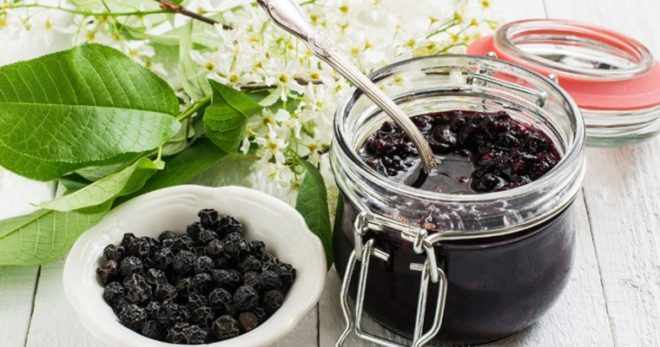
The benefits of bird cherry flour
The dried berries are used to make bird cherry flour. It is interesting that the stone is not extracted from the fruit - it can no longer harm the dried form, but it gives the flour an unusual almond flavor.
The benefit of bird cherry flour is that any baked goods based on it - pancakes, pies, muffins or bread - acquire anti-inflammatory, soothing and tonic properties.
Procurement and storage
Harvesting bird cherry is carried out throughout almost the whole year - the timing depends on which part of the plant is in question.
- It is customary to collect bark in April, when the juice begins to move under it.
- Flowers are harvested in May and June.
- Foliage gains maximum useful properties in early summer.
- The berries ripen fully only by August.
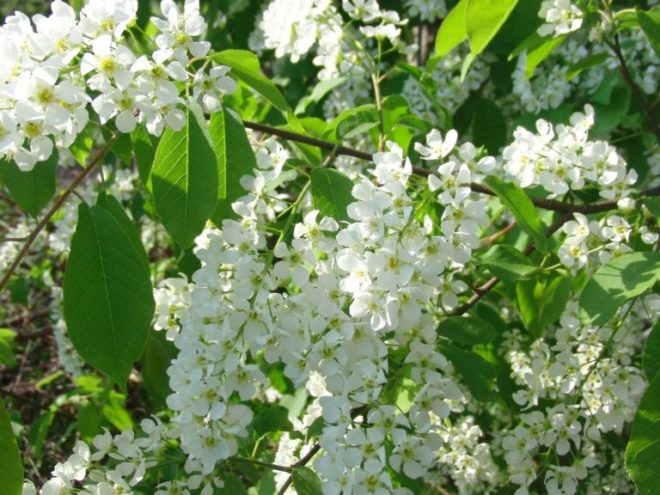
It is recommended to dry all parts of the plant so that they can retain their benefits for as long as possible. For example, dried berries are stored for about 2 years, flowers and leaves - for a year, and the bark is completely usable up to 5 years. You need to store bird cherry in any form in a dry place, away from bright light.
Contraindications and harm of bird cherry
Although the benefits of bird cherry are unconditional, this plant has many contraindications. For example, you cannot use berries, leaves, bark and flowers:
- with individual allergies;
- during pregnancy and lactation;
- with hypertension;
- if there is a tendency to constipation;
- with type II diabetes.
The plant will be harmful to children under 3 years old.
Use fresh berries, bird cherry jam and any drinks based on it with caution. The substance amygdalin contained in the leaves, bark, flowers and seeds of a plant can cause severe poisoning in case of an overdose.
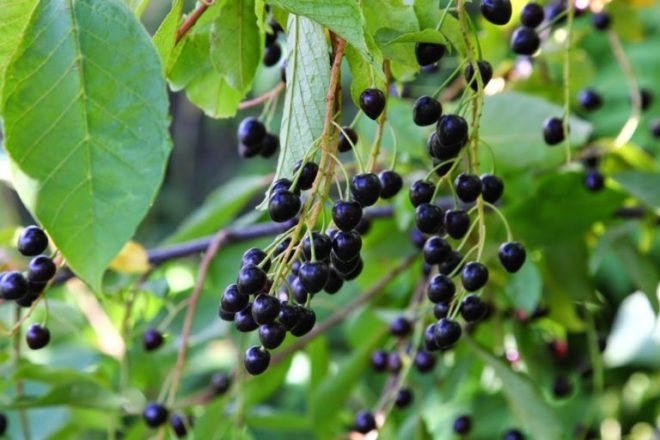
Conclusion
The benefits and harms of bird cherry can be about the same. The plant strengthens the body and helps in the treatment of many diseases, but at the same time it remains quite poisonous - it is strictly forbidden to use it in large portions.

